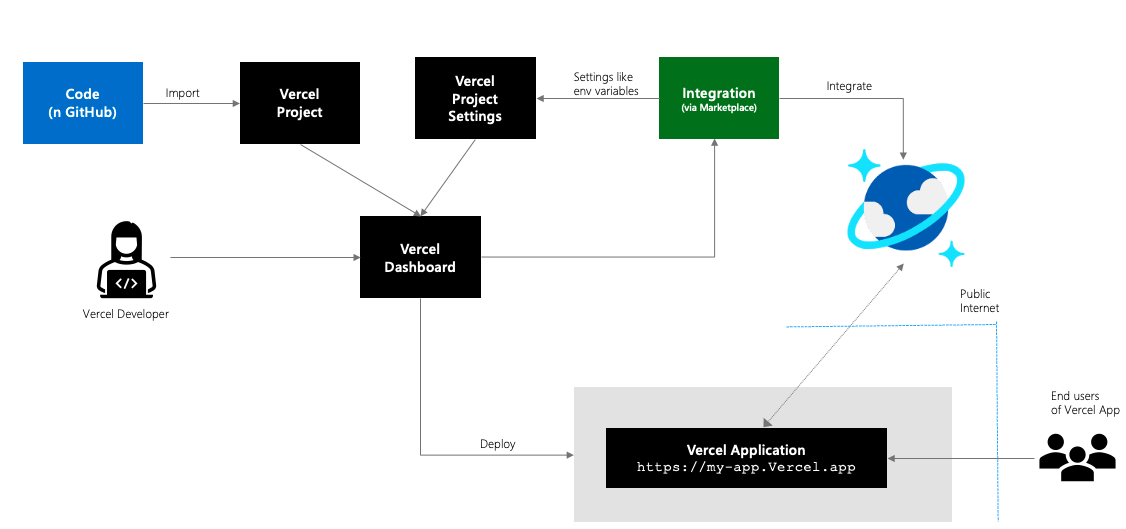Microsoft recently announced the public preview of the Vercel and Azure Cosmos DB integration allowing developers to easily create Vercel applications with an already configured Azure Cosmos DB database.
Azure Cosmos DB is a globally distributed, multi-model database service provided by Microsoft that offers high scalability, low latency, and comprehensive data consistency across multiple data models and APIs. While Vercel is a cloud platform that simplifies the deployment and hosting of web applications, providing developers with a way to deliver fast and scalable websites. By integrating Vercel and Cosmos DB, developers can connect their web applications with a managed global distributed database hosted in Azure.

Source: https://devblogs.microsoft.com/cosmosdb/announcing-vercel-and-azure-cosmos-db-integration/
A developer can leverage Vercel Templates or Vercel Starter Projects, which are pre-configured boilerplate projects that provide a starting point for building web applications or static websites. Currently, an Azure Cosmos DB Next.js template is published on Vercel’s marketplace, which is a ready-to-use project structure and configuration. Furthermore, there is a starter app available on GitHub.
Vercel and Cosmos DB integration works with Azure Cosmos DB for NoSQL and Azure Cosmos DB for MongoDB. Furthermore, only existing Azure Cosmos DB accounts are supported. A developer can, after creating a Vercel project, start by adding the integration with a Cosmos DB account (note that the account needs to be set up earlier). In addition, the developer can also choose to have integration with Cosmos DB done through a command line.
On an Azure Reddit thread, a respondent commented on the integration of Vercel with Cosmos DB:
This might make things a little simpler, but they were simple before. I’d have to see the overhead of this solution to justify using it.
Currently, I build my backend in .NET and my front end in Nextjs. On a website that doesn’t get too much traffic daily, I can run my setup absolutely free every month by using Azure’s free server. I do pay $.02 cents for the blob storage, but that’s a cheap way to host.
If this new integration allows for the same inexpensive setup, I’d give it a shot, but having the backend and front-end separation is beneficial in its own ways.
More details on pricing and availability of Cosmos DB is available on the pricing page, while the pricing of Vercel can be found on their pricing page.